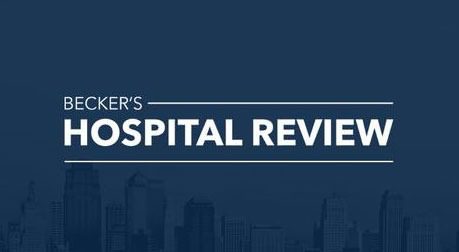
The ‘profound’ effect of Ascension’s discount prescription partnership – Becker’s Hospital Review | Healthcare News
More than two decades ago, St. Louis-based Ascension realized a troubling trend: While many patients could not afford basic medications, pharmacies were discarding unused drugs as they neared expiration dates.
In the wake of this recognition, the health system partnered with Dispensary of Hope, a nonprofit organization that distributes free, donated pharmaceuticals, and Ascension has since launched programs system-wide to expand medication access.
“We have 25 Ascension pharmacies that are part of the Dispensary of Hope network,” Michael Wascovich, PharmD, vice president and chief pharmacy officer at Ascension, told Becker’s. “We’re looking to significantly expand that here in 2025 and in 2026 and again, it’s recognizing we have patients walking into the pharmacy and saying, ‘I can’t afford my medicine.’ We don’t want any barriers for patients to get their medicine.”
The medications, mainly donated by manufacturers, are distributed from the central hub in Nashville, Tenn., to pharmacies across the country, including at Ascension hospitals in cities such as Chicago and New York.
A growing need for access
The partnership is aimed at addressing the rise in demand among uninsured or underinsured patients who struggle with access to medications. Dr. Wascovich noted that increasing Medicaid consolidation and barriers to insurance have increased patients’ need for free or low-cost medications.
Pharmacies participating in the network will regularly see patients with chronic conditions such as hypertension and asthma who cannot afford their prescriptions. By providing them at little to no cost, the health system has seen fewer costly emergency department visits, and patients have seen fewer long-term implications.
“We know if you don’t get your medicine, you’re going to be in the emergency room this weekend,” Dr. Wascovich said. “So if we can give you a low-cost or free medicine, motivate you to take it and remove the financial barrier that’s maybe in your way, that’s a good thing for you and your family. It’s a great thing for the community, because for the overall total cost of care, we would much rather give you a low- or no-cost medicine than treat your heart attack or your asthma exacerbation.”
Measuring success
Ascension is working to define what success and growth look like for the partnership. Dr. Wascovich said only about half of the medications Ascension would like to see on the Dispensary of Hope formulary are available, and expanding access is a focus going into 2026.
From a financial perspective, the program has delivered considerable value. “We do have great studies from the dispensary club showing a $1 investment in this program saves $5 to $10 to $20 over time, because we know if we can avoid an unnecessary visit to the ED or a readmission to the hospital, those are tens of thousands of dollars saved for patients.”
A peer-reviewed evaluation of the Dispensary of Hope Program, published in the Journal of Managed Care & Specialty Pharmacy, found that the initiative led to substantial health system cost savings and reduced inpatient utilization.
In one participating health system, patients enrolled in the program saw annual per-person medical costs drop by more than $3,100 compared to nonparticipants. Hospital stays also declined by 200 per 1,000 patients annually.
Lessons learned
Dr. Wascovich emphasized that internal leadership support at Ascension has been essential to expanding the partnership with Dispensary of Hope.
“You need executive champions,” he said. “It’s not always so easy to get buy-in at your local hospital and make it a priority, so that executive leadership champion is what’s needed in order for it to really drive results.”
In addition to the Dispensary of Hope partnership, Dr. Wascovich added the health system uses a range of tools to expand access including funding a prescription assistance card and working with drug companies that have foundations on their own programs. As the health system looks ahead into the next few years, however, expanding the Dispensary of Hope partnership will remain a top priority.
“This is why I went to school. This is why I’m at Ascension,” Dr. Wascovich said. “I want to take care of people. When you remove those barriers, it is profound.”



